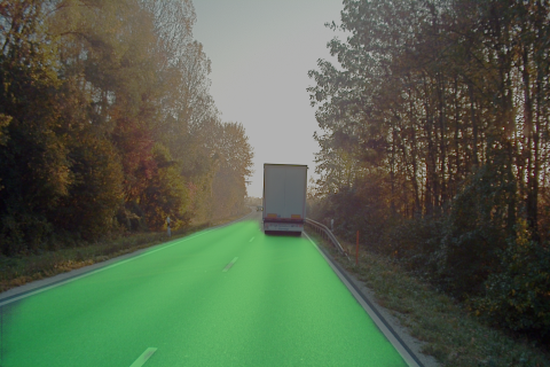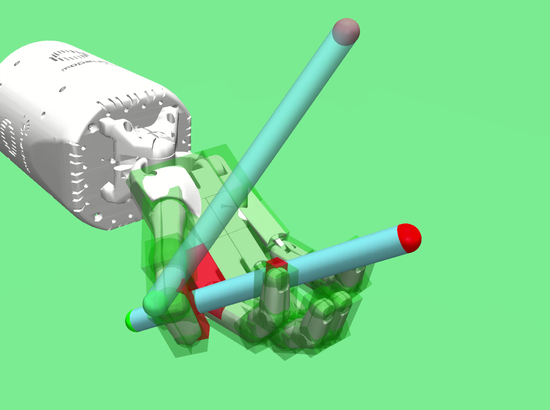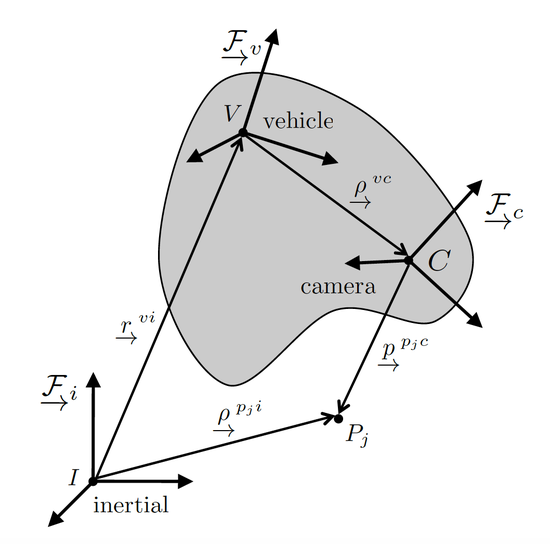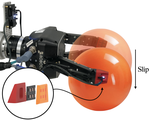Biography
I am Machine Learning Engineer at Ocado Engineering working to build an autonomous robotics system for grocery fulfillment. In the past, I was a research student at University of Toronto, adviced by Dr. Jonathan Kelly where I had the opportunity to publish several papers in the field of Robotics and Artificial Intelligence. I am a receipient of the NSERC Canadian Graduate Scholarship and Vector Scholarship in AI.
I graduated from University of Waterloo with a bachelors in Mechatronics Engineering and an option in AI, during which time I worked as a research assitant for Dr. Krzysztof Czarnecki, Dr. Mihaela Vlasea, and Dr. James Tung. For 12 months, I worked as an intern at Nvidia US where I contributed to their self-driving infrastructure. Through various co-ops and internships, I graduated with over 2 years of work experience.
Please checkout my projects and publications below.
- Autonomous Robots
- Robot Manipulation
- Artificial Intelligence
- Cricket, Tennis and Badminton
MASc in Robotics and AI (Aerospace Department), 2021
University of Toronto
BASc in Mechatronics Engineering, 2019
University of Waterloo
Experience
Worked in a team of 25 machine learning engineers, led by Dr. Urs Muller, creating an end-to-end autonomous driving solution. (Linux, C++, Git, Bash)
- Contributed to the re-architecture of Nvidia’s Driving Simulation application in order to enable simulation on the GPU cluster and standardize the benchmark testing of DriveNets across the company
- Developed a prototype of a model-predictive vehicle controller in C++ that runs on the DRIVE Xavier platform
- Contributed to Nvidia DriveWorks SDK which meant overcoming extensive quality checks designed for MISRA compliance
Worked on Nvidia’s DRIVE hardware stack, aiming to revolutionize the Automotive computing industry (C++, bash, python)
- Contributed to the Embedded PDK for the DRIVE automotive hardware products, that now serve giants like Tesla and Audi.
- Re-implemented the Tegra flashing software for the DRIVE computing platforms to meet strict Automotive standards and to gain MISRA compliance.
- Architected the incremental Tegra flashing functionality, reducing the average OS flash time to half.
As a core member of the software development team, I worked closely with the R&D department to prototype a new application for their tool tracking system.
- Prototyped a cranial navigation Mac OS application using the existing tracking system
- Worked with OpenGL based Visualization Toolkit (VTK) for 3D image rendering
- Gained understanding of computer vision algorithms used for sphere tracking
- Exposed to optimisation algorithms used for shape matching
Projects

Accurate Road Segmentation using Camera and LIDAR Data for self-driving application
Completed as part of a graduate course at the University of Toronto | PyTorch. Implemented a Fully Connected Network based Road Segmentation pipeline on Audi’s A2D2 dataset using PyTorch and OpenCV.

Failure-Mode Analysis of A Learned Dexterous Hand Controller
Completed as part of a graduate course at the University of Toronto | Tensorflow, Python, OpenAI gym. Conducted a failure mode analysis on learned DDPG-based policies used to control a dexterous hand with tactile sensors, in an attempt to understand the utility of tactile information.

Invariant EKF Slam
Completed as part of a graduate course at the University of Toronto | MATLAB. Simultaneous Localization and Mapping (SLAM) has been a highly research problem and the techniques that solve it have undergone huge improvements in the last two decades.
Contact
- Palo Alto, California
- Email Me

